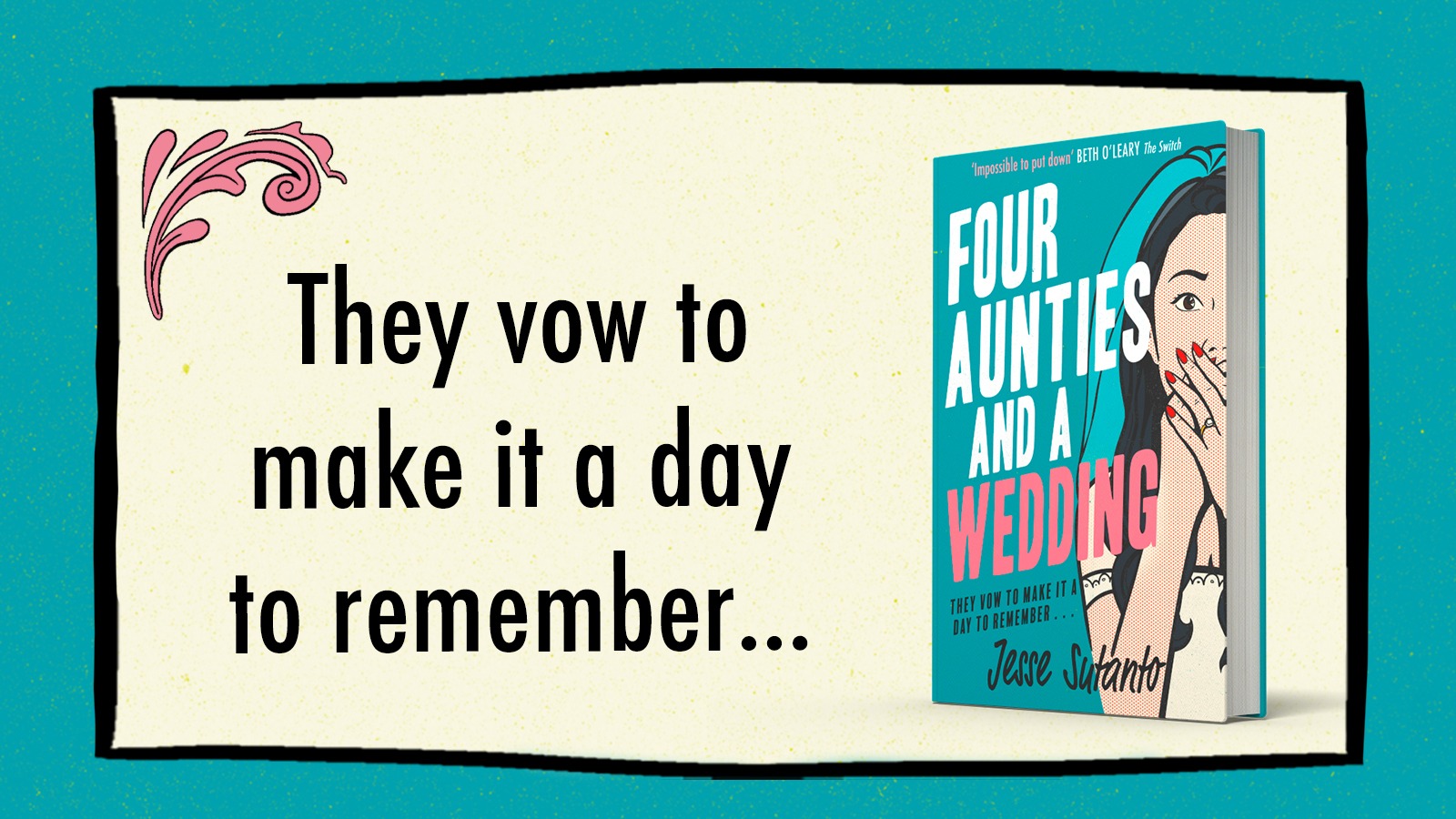In today’s blog post, Jesse Sutanto reflects on writing her award-winning debut novel Dial A For Aunties and its upcoming hilarious sequel Four Aunties and a Wedding, and how in both books she shares with us a slice of her culture and her experience with the Asian diaspora.
When I wrote the first book in the series, Dial A For Aunties, I wanted first and foremost to share a slice of my amazing family and culture with the world. I feel so lucky to be able to do that again with Four Aunties and a Wedding. In Dial A For Aunties, I was concerned about straddling the line between authenticity and stereotype, wanting to show the kind of broken English that my family speaks without turning it into a source of ridicule. I’ve been so grateful and touched by the warm reception Dial A For Aunties has received. With the sequel, I wanted to tackle the subject of the Asian diaspora.
Like Nathan, my husband is half Asian and half English. My mother-in-law is Chinese-Singaporean, and when I first met my husband, I was so excited because I’d been very homesick in Oxford. I grew up in Singapore and Singlish is the language I’m most comfortable speaking, so to meet another Singaporean in a foreign country was such a breath of fresh air.
I excitedly asked my husband what his favorite Singaporean food is (mine: roti prata), where he went to school in Singapore, and can we please speak Singlish to each other, lah? Every single question was met with a blank stare. As it turned out, my husband may be half Singaporean, but he left the country way too young to remember much about it aside from “It’s hot.”
Later on, after we had dated for a while, I was excited to meet his parents. I thought his mom would retain more of Singapore, but as it turned out, she too spoke flawless British English, and aside from cooking the most delicious Chinese food, she had integrated seamlessly into English culture. She even asked me to call her by her first name rather than the Asian way of calling her “Auntie.”
The first time my parents met my husband’s parents, the meeting was a very awkward one. Both sides were clearly baffled by each other. I’d hoped that they would find similarities since both my parents and my mother- in- law are technically immigrants, but instead, the meeting only highlighted their differences. Fortunately, both sets of parents made efforts to bridge the gap and we all get along beautifully now, but it took some work to get here.
The experience really hammered home how different every Asian diaspora experience is. A lot of the time, we tend to get lumped into one single category: Asian. An umbrella term that ignores the huge differences that arise based on not just where we’re from, but when we left and where we settled down. In Four Aunties and a Wedding, I hope to show how varied the Asian diaspora experience can be, and how there is no right or wrong way of “being Asian.”
Four Aunties and a Wedding is coming March 31st. Available to pre-order here.



